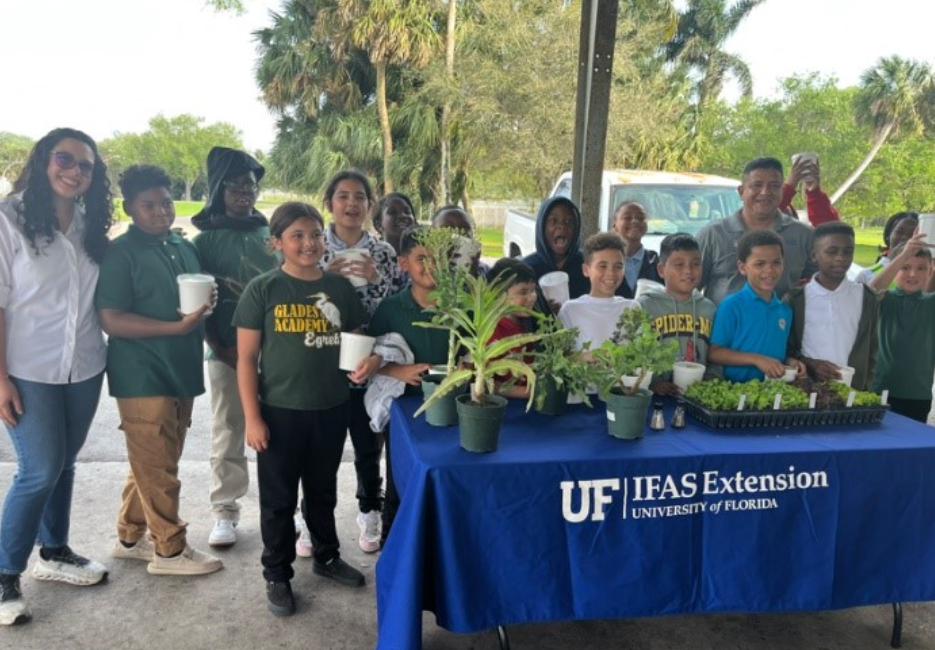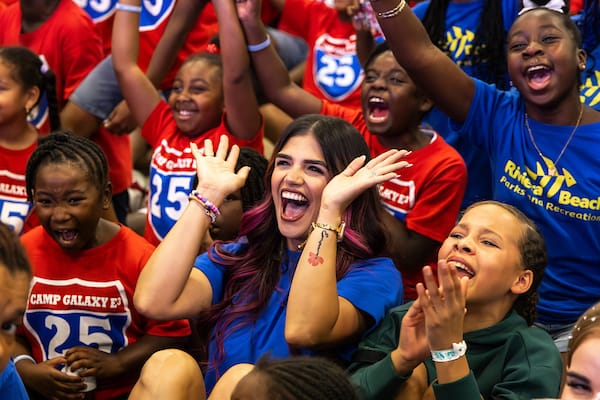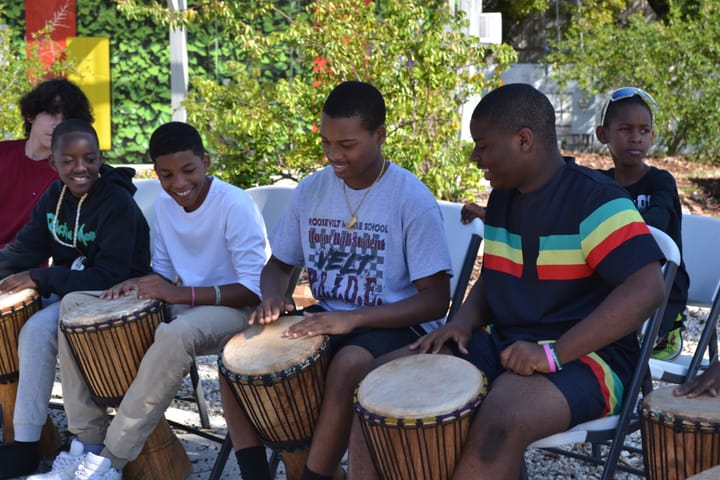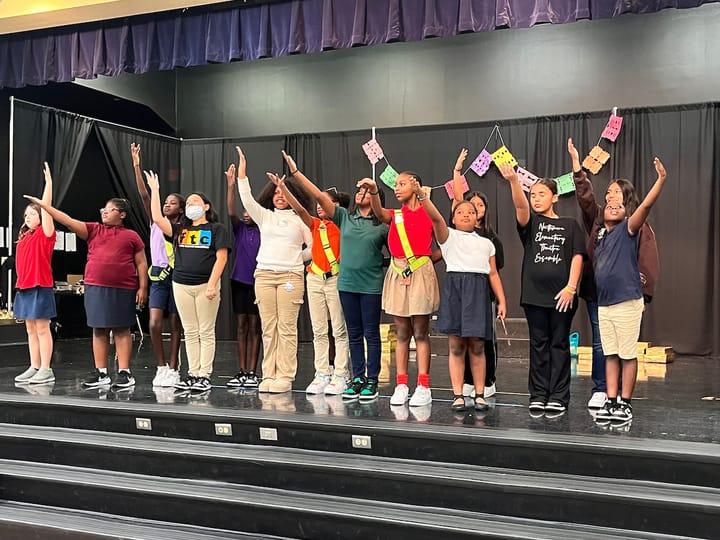By Guest Blog Contributor: Patricia Sasson, STEAM Professional Development Specialist, Prime Time Palm Beach County.
In Palm Beach County, our out-of-school time (OST) professionals and youth are discovering the exciting worlds of aquaponics, hydroponics and lettuce production that takes place right in our own backyards. This past year, I spearheaded innovative learning opportunities that seamlessly connect the professionals and youth to cutting-edge science, research and hands-on experiential learning.
After a curious visit to the Marine Education Initiative (MEI) in Delray Beach, I brainstormed ways to integrate the non-profits indoor aquaponic farming center with the STEAM Initiative training series.
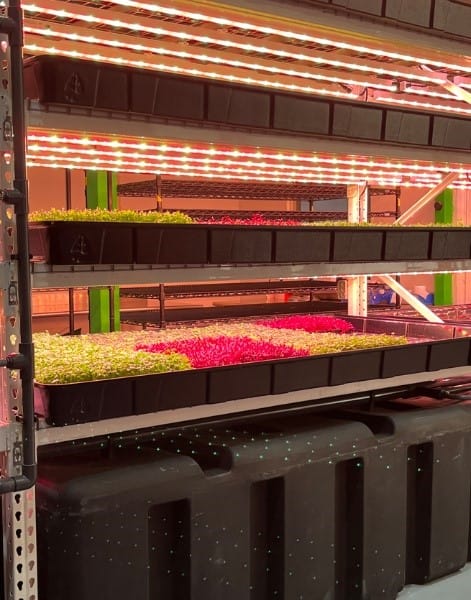
MEI is a state-of-the-art farming facility that grows and harvests various lettuces and micro herbs through the process of both aquaponics and hydroponics. The produce is then shared within the community and food banks throughout Palm Beach County.
MEI’s educational program teaches youth about the vital connections between marine conservation, aquaponics and diverse ecosystems illustrating how these elements all collectively promote sustainability within our own communities. MEI field trip information was shared with participants of Prime Time's STEAM Initiative to bring awareness and excite program staff with hopes to integrate it into their summer programming.
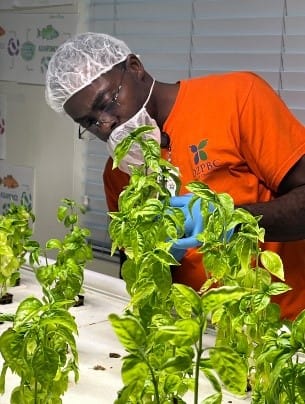
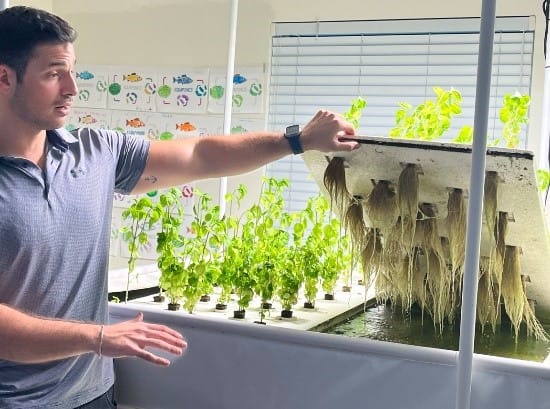
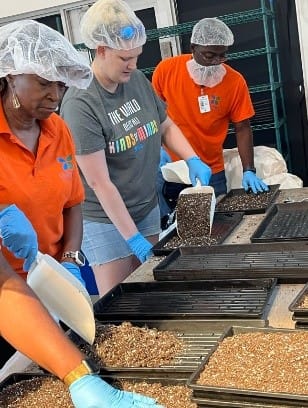
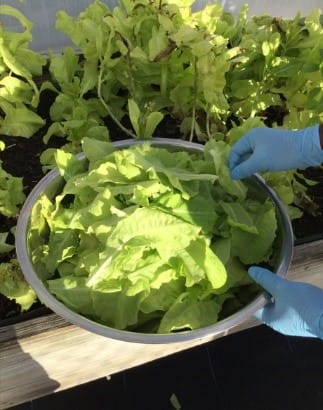
To directly engage afterschool professionals in aquaponics and hydroponics learning, Prime Time partnered with MEI to offer an exclusive field trip and learning opportunity to our STEAM cohort members. Fifteen of these cohort participants toured the MEI farming center, gaining first-hand insight into the growth process of various micro herbs from seed to harvest and the continuous aquaponics and hydroponics cycles that these plants depend on. The cohort members prepared seed beds, trimmed new basil starter plants and labeled herb containers for distribution. After taste-testing different micro herbs and receiving a take-home hydroponic lettuce experiment from Prime Time, attendees were ready to bring the learning back to the youth.
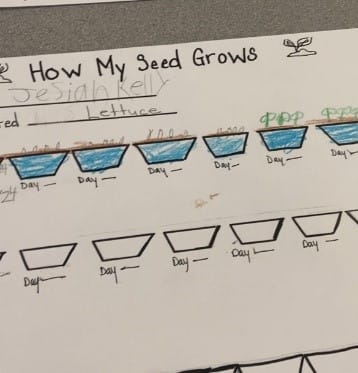
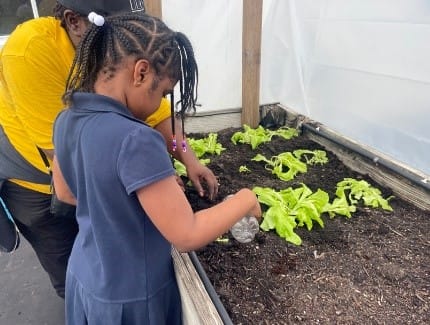
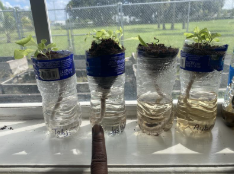
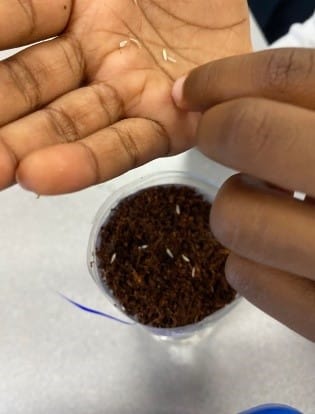
Jennifer Carter, a dedicated practitioner and gardener from Orthodox Zion CDC Afterschool Program was eager to try the hydroponic lettuce experiment with youth at her site. Using a special growing medium, instead of soil, the youth planted lettuce seeds in recycled water bottles. The youth filtered a nutrient-rich water solution directly to the seed and within just two days, the seedlings began to sprout. They tracked their plants for two weeks by observing, measuring and drawing the growth cycle. To see the lettuce growing into individual plants was an exciting learning experience. Within a month, Orthodox Zion had constructed an outdoor greenhouse, transferred their lettuce plants outside and revitalized their garden. Each week the youth help to water, harvest and pick lettuce that they bring home and share with the families in their school and church community.
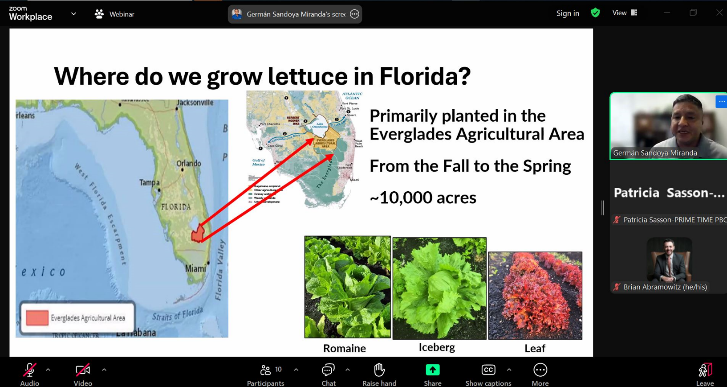
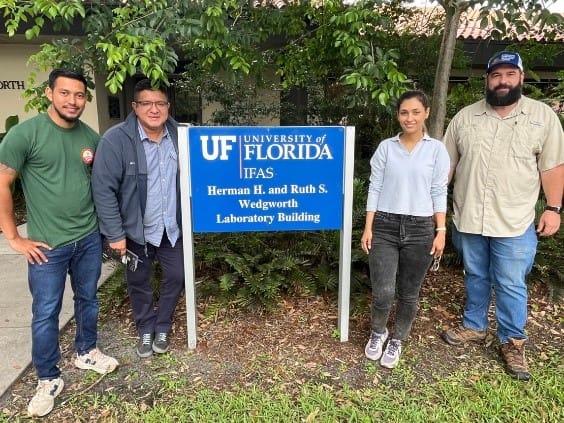
The learning continued with Prime Time’s Meet-A-Scientist series, an opportunity for youth in afterschool programs to virtually connect each month with real scientists.
One of many scientists included Germán Sandoya-Miranda. Dr. Sandoya led his graduate students in studying hydroponics, lettuce breeding and lettuce genetics. His research lab is at the UF/IFAS Everglades Research and Education Center in Belle Glade. I introduced New Hope Charities Afterschool Director Lorena Diaz to Dr. Sandoya and they collaborated to bring the Youth from New Hope Charaities to the UF Research Lab in their community.
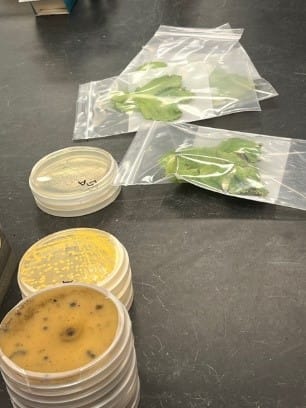
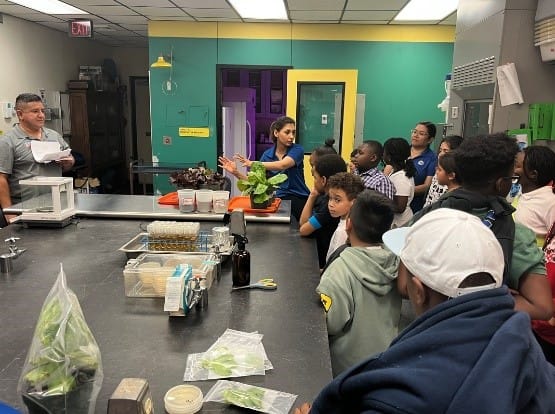
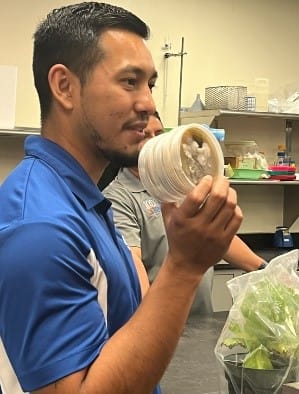
On Wednesday, March 5, 2025, forty youth and staff from the New Hope Charities Afterschool Program were greeted by the research team for an afternoon tour. The elementary-age youth were excited to visit the plant pathology and DNA labs. They got to study different lettuce and bacteria samples up-close. The scientists discussed how bugs, bacteria, and fungus each affect plants and why and how plants can get sick. They learned these scientists study bacteria and are ‘doctors’ that help cure plants. Youth observed different types of soil and compared texture, color and plant growth from different nutrients.
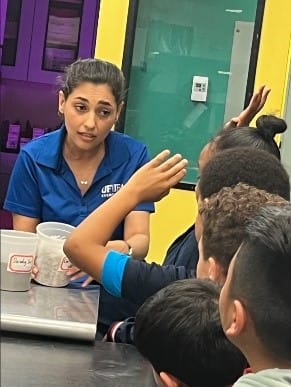
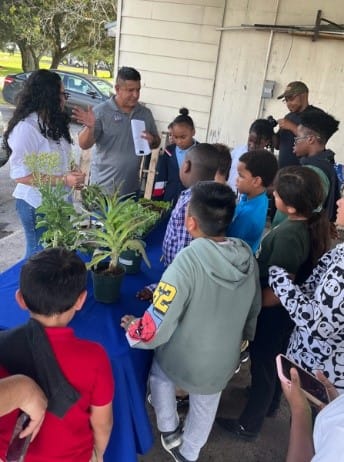
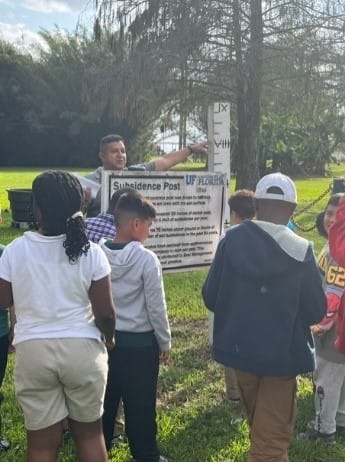
Outside, the boys and girls learned about the Subsidence Post, a tool used to educate students and the community about how the land in the area has changed over time and continues to change due to subsidence. At one time the soil surface was nine feet above the current ground level and each year the soil subsidence continues to decline. In an outdoor garden lab, the group observed lettuce seeds and the growing cycle. Before returning to Pahokee, all New Hope junior scientists created lettuce seed cups to take home and cultivate.
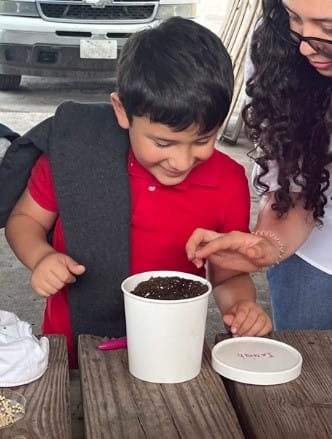
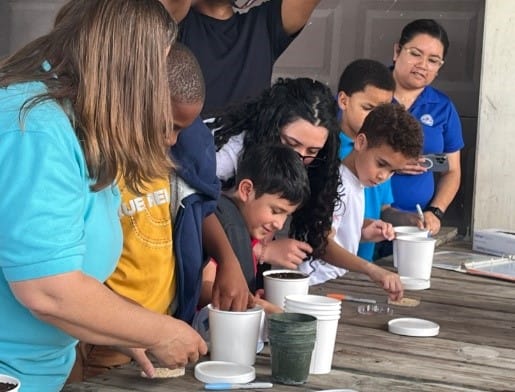
“Living in this community where agriculture is the main source for jobs it is important that our kids learn that agriculture is not only about harvesting crops, driving a tractor, working on the field, but it is also about studying the soil, the plants, insects, etc. and the whole process from seed to crop and that there are careers that focus on this area of agriculture and hopefully one or more grows the curiosity and the love for agriculture and become the next Dr. Sandoya!” said Ms. Lorena the Afterschool Director at New Hope Charities Afterschool Program.
Dr Sandoya excitedly responded, ”The future is bright in The Glades. We are training the scientists of the future.”
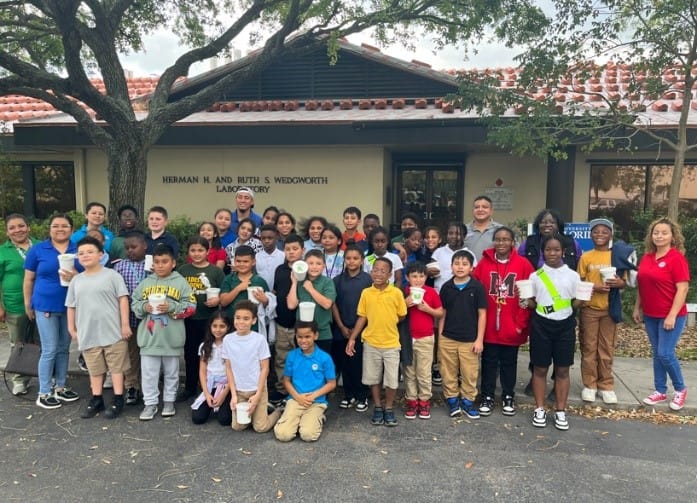
Want to bring a hydroponics activity in your afterschool program? Try Hydroponics Made Easy from Science Buddies.
Learn more about Prime Time's STEAM Initiative here.

